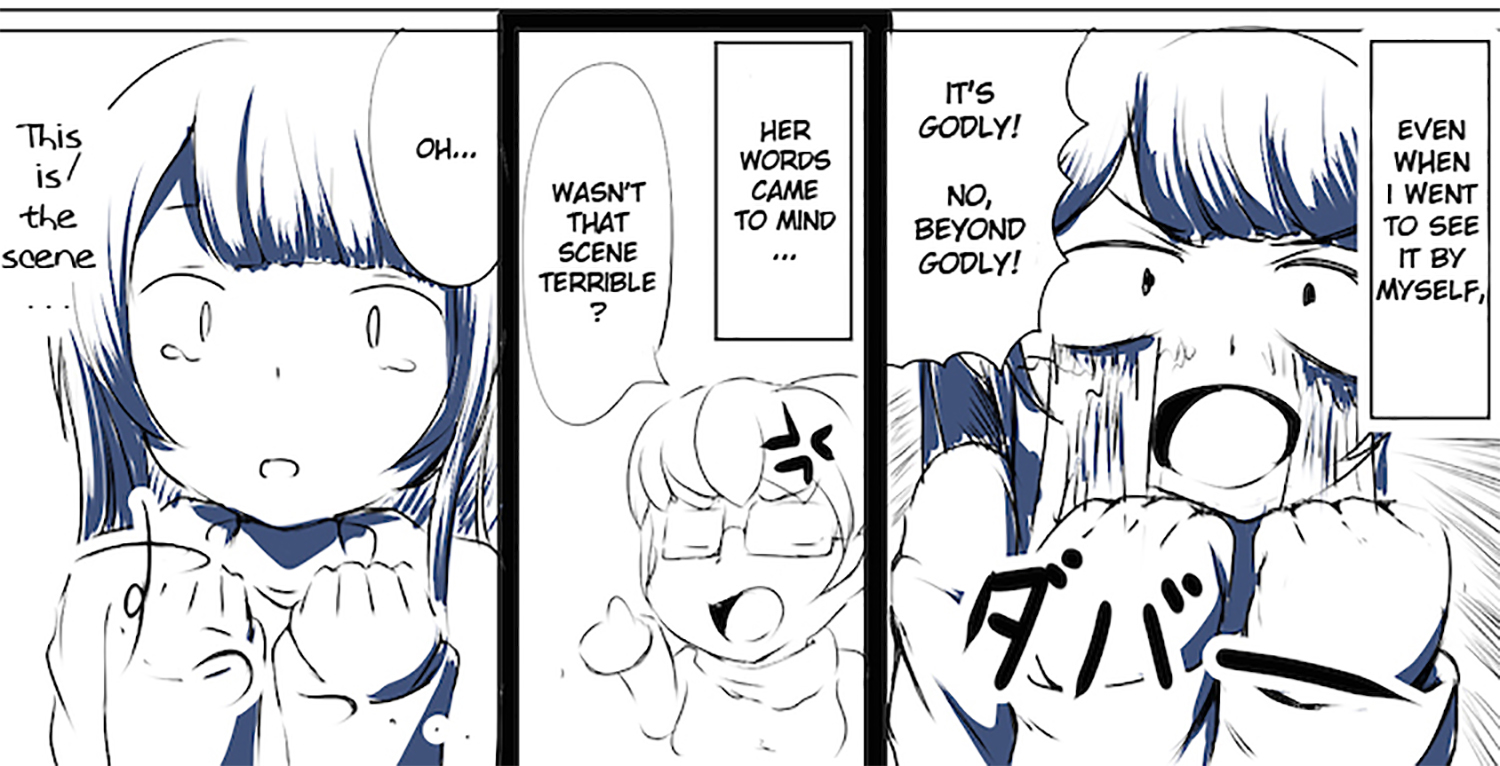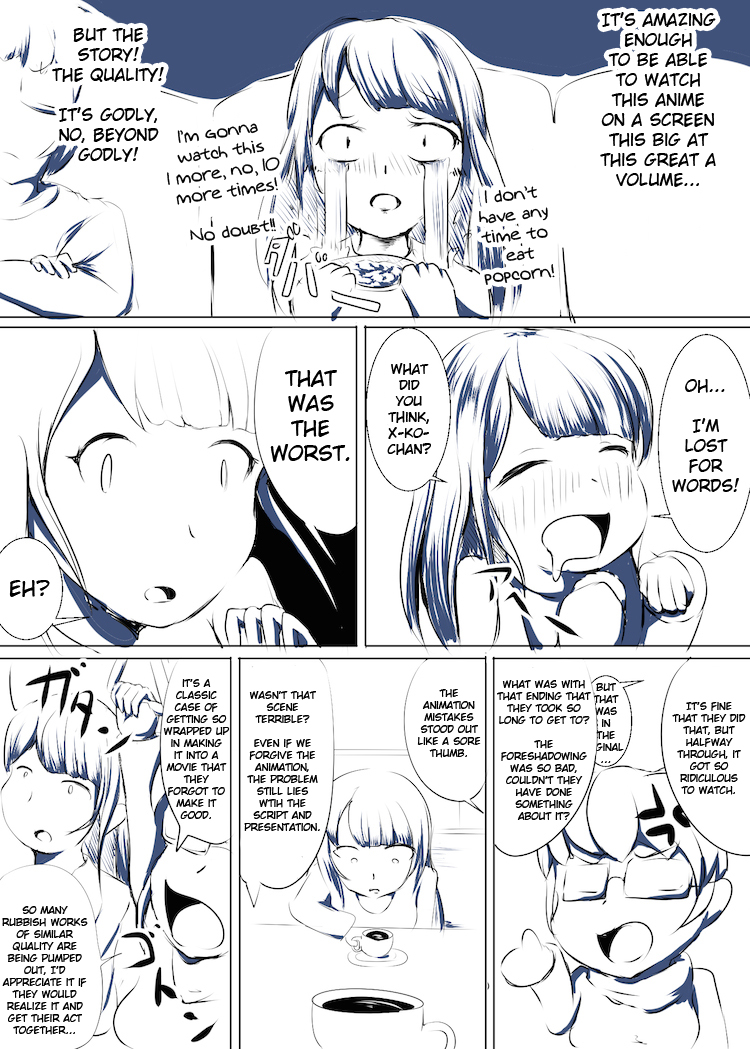A short comic has been making waves lately. Created by Pixiv artist “micorun,” “Why I Couldn’t Watch an Anime I Loved Anymore” is the short story of a girl who’s love of an anime is affected by her friend’s criticism of it.
In summary, the protagonist, excited that her favourite anime is getting a movie, invites her friend to the premiere. Though our protagonist is deeply moved, her friend proceeds to rattle off every problem she had with the film, which sticks in her mind, even after going to see the movie again. She loses interest, refusing to see the movie again or even buy the disc release.
In the past, I’ve been very critical of anime criticism, in particular, and this comic illustrates one of the reasons.
What’s important to first understand is the cultural context to the comic. The Japanese go about criticism in a much different way than we do. The Japanese use a much more subtle, roundabout way of criticizing things, especially to other people. This is because it’s easy to take biting criticisms personally.
Here in the West, we put a lot of value on criticism, especially blunt criticism. While it may very well be valuable in certain circumstances, the mentality pervades our culture (especially in nerd subcultures) to the point where people often don’t think before giving their bluntest, most scathing opinion.
Now, certainly, a response to this comic could be that the protagonist needs thicker skin, and that’s a reasonable, if very easy, way to look at it. Let’s examine the situation put forth in the comic a bit more, though.
Immediately upon being asked what she thought of the movie, our protagonist’s friend launches into an indignant rant, listing off every flaw she could pick out of the movie, with a complete disregard for her situation. She knows the protagonist is into the anime, yet her compulsion to criticize preceded her situational awareness. There are a number of more tactful things she could have said to express how she felt about the movie, at least in front of her friend who loved it.
I remember a conversation I had on Facebook a few years ago, where the person I was talking to had asserted that being heavily into something could be seen as obnoxious and reflect badly, especially when those super-fans ignore the flaws in their chosen show. Again, fair assessment, but again, I’d like to examine that dynamic further.
When I see someone ignore the flaws in a show, my desire is not to shoot them down for it. My desire is to pick their brain. There’s obviously something about the show that so good, it causes them to ignore whatever flaws it has. Or, further, they might see what one person labels “flaws” as strengths. Differences in opinion like that are opportunities for discussion, but when someone’s first instinct is to cut down a show they think is bad, that cuts off that opportunity. Who wants to engage with someone who’s first instinct is to be critical and negative?
Be open to each other. We should be quick to discuss our differences in opinion, not quick to make value-judgments. Don’t be afraid to qualify your statements with “in my opinion…,” or “I feel like... “. It might seem like you’re walking on eggshells at first, but if you can get used to speaking in a way that leaves you open to other people, you’ll see the quality of the discussions you have improve greatly.
We have an obsession with “pointing out flaws,“ especially when it comes to media. “Everybody’s a critic,” as the saying goes. But what’s lost in the focus on criticism is the appreciation for the ways in which we enjoy things. People are expected to acknowledge the flaws in the things they like, but aren’t expected to take into account the fact that people might like the things they criticize. Couple that with the difficulty of articulating a positive opinion, vice that of a negative opinion, and it’s easy to see how the comic’s protagonist was left dumbstruck and silenced by her friend’s scathing criticism.
Here’s an exercise I want everyone to do.
Next time you’re watching an anime you’re really enjoying, pause it or finish the episode and think to yourself: What am I enjoying about this show?
Make a list, write it down, do whatever you need to do to be able to tell someone why you’re enjoying that show and what you like about it.
What do you think? Does the comic’s protagonist just need thicker skin, or is there more to it than that? Post it down in the comments!







